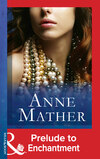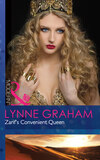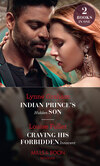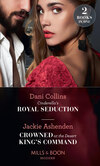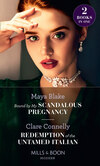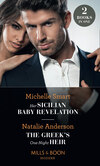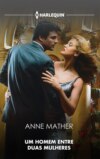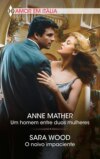Kitabı oku: «Prelude To Enchantment», sayfa 2
‘I—I think so.’ Sancha closed her book with a snap.
‘Good.’ He swallowed some of the wine and holding up his glass to the light examined the remainder of its contents with intent appraisal. ‘And now perhaps you will tell me something about yourself.'
Sancha glanced jerkily towards the door, willing Tony to appear. This was the moment she had been dreading and now that it was upon her she was unprepared for it.
‘There's very little to know about me, signore,’ she replied, with what she hoped was casual nonchalance.
‘I am sure you are not serious, signorina,’ the Count persisted, turning his gaze to her once more. ‘For instance, what is an English girl like you doing working in Italy?'
‘How can you be sure I am English?’ Sancha was curious.
The Count half smiled. ‘Your companion informed me that your Italian counterpart could not take the interview because of illness. Your name is Forrest, which you will admit is an English name, and besides, you forget, I heard you talking together in the gallery. It was inconceivable that you should be anything else. Besides, few Italian women have your excessive fairness.'
Sancha bent her head. ‘I see.'
‘So now—you have not answered my question. Why are you working in Italy?'
Sancha shrugged her slim shoulders, wishing he would move away, go and sit elsewhere, anything!
‘My uncle is the editor here,’ she explained. ‘I was working in the London office when he suggested I might like to spend a year working in Venice.'
‘Eduardo Tessile, he is your uncle?'
‘Yes, signore. His wife is my mother's sister.'
‘Ah so,’ the Count nodded. ‘And do you like it here?'
‘Very much.’ Sancha managed a slight smile. ‘Venice is a very beautiful city.'
‘You think so? You do not find the odorous scents of the canals offensive?'
‘No, signore.’ Sancha made an expressive gesture. ‘Do—do you?'
‘Me?’ The Count's eyes narrowed. ‘No, signorina. But you see Venice is as much a part of me as I am of it. It is my city, my home. The churches—the squares—the bridges; they represent so much more to me than mere architecture.'
Sancha smoothed the cover of her notebook. ‘The Piazza San Marco is very impressive,’ she volunteered awkwardly.
The Count finished his wine. ‘Yes, very impressive,’ he agreed dryly. ‘But then it is designed to be. However, myself I prefer the less—shall we say tourist-inhabited places of the city.'
Sancha accepted his words silently. She couldn't think of any constructive comment to make. Although she had been in Venice six months she had in fact see little of the lesser-known areas of the city. She worked all week and at weekends her uncle and aunt seemed to think it was incumbent upon them to provide entertainment for her. They had no children of their own and consequently they went out of their way to show Sancha how much they enjoyed her company. In consequence she had done little sightseeing.
‘Tell me, signorina, how long have you been in Venice?’ The Count had poured himself more wine, and was now regarding her searchingly.
‘Oh—er—about six months,’ she replied quickly, wondering whether he was capable of reading her thoughts as well as disconcerting her as he did.
‘And of course you are staying with your uncle and aunt?'
‘Actually, no.’ Sancha shook her head. ‘My uncle's house is outside the city and although he commutes to his office every day he suggested I should share the flat of two other girls who work for Parita.’ She tucked a strand of hair behind her ear. ‘I—I spend weekends with them.'
‘I see.’ The Count inclined his head. ‘You must forgive me if I am excessively curious, signorina, but in Italy a girl such as yourself would not be permitted such freedom.'
Sancha shrugged. ‘Oh, we are quite-emancipated,’ she said, uncomfortably aware of the sardonic gleam in his eyes. She rose quickly to her feet and crossed the wide room to the tall windows which overlooked the canal, staring out with assumed interest. Opposite, the high wall of a building cast shadows on the water and beyond could be seen the gilded campaniles of the city. It was late afternoon and the shadows were lengthening, but the scene was unbelievably beautiful.
The Count flicked his lighter and the sound caused her to turn and glance quickly behind her. He was lighting another cheroot and the flame of the lighter illuminated the tanned length of his fingers. The only effeminate thing about him was the inordinate length and thickness of his lashes and these flickered upwards now as his eyes encountered hers. For a moment he held her gaze and then she looked quickly away tremblingly, aware that his eyes had been assessing her with an almost clinical detachment. But why? What reason could he have? …
The opening of a door relieved her mortification and she swung round eagerly to see Tony entering the room with Paolo just behind him.
The Count's reactions in comparison were smooth and unconcerned. ‘You have completed your pictures, Mr. Braithwaite?’ he enquired.
Tony smiled politely. ‘I would like a couple of shots in here, if I may, signore,’ he replied, ‘but otherwise, yes, I'm very happy with what I've taken.'
‘Good! Good!’ The Count straightened and gestured expressively. ‘Go ahead. Is there anything in particular you wish to photograph?'
‘You would not agree to be photographed holding a copy of your book, I suppose?’ Tony suggested awkwardly.
The Count drew deeply on his cheroot. ‘My dear Mr. Braithwaite. I understand your dilemma, believe me. But it is not exactly to my liking that this article should be done at all as no doubt you have gathered from your editor. But my publisher——’ He spread a careless hand. ‘The palazzo is yours to do with what you will, but I …’ He shook his head. ‘I prefer my anonymity in this mad world of ours, Mr. Braithwaite.'
Tony smiled, obviously with difficulty, and glanced rather meaningfully in Sancha's direction. ‘Very well, signore,’ he said politely. ‘If you'll excuse me I'll get on.'
Within ten minutes it was finished and the Count was bidding them both arrivederci. ‘It has been most enlightening,’ he said, with enigmatic charm. ‘I trust you have both enjoyed it.’ He smiled. ‘As I have.'
Tony managed a polite rejoinder and Sancha murmured her thanks in an undertone.
Then Paolo was escorting them down the marble steps to the lower hall and out into the brilliant sunlight.
Once in the launch, Tony flexed his muscles and breathed a sigh of relief. ‘Thank God that's over!’ he exclaimed fervently, surprising Sancha. Tony was usually so unconcerned.
She looked up at him curiously. ‘What's wrong? Didn't you get the photographs?'
‘Oh, yes, I got plenty of photographs. Paolo saw to that,’ replied Tony lighting a cigarette with hands which were not quite steady. ‘But it was bloody awful down in the dungeons!'
‘The dungeons?’ Sancha stared at him.
‘Yes. You knew they had such things, didn't you?'
‘I—I suppose so. I never thought of it. Why? What went wrong?'
‘Nothing.’ Tony exhaled and seemed to regain a little of his composure. ‘Nothing except that that bloke Paolo seemed to resent me being there.'
‘You mean—he said so?'
‘Nothing so simple. No, it was his attitude. Sancha, I tell you, it made me realise that these servants men had who were reputed to be intensely loyal to the extent of murdering for their masters were real. My God, I believe old Paolo would have murdered me if he'd thought it would do any good.'
‘But why?'
Tony sighed. ‘I told you, the Count didn't want us to do the interview. He's been practically blackmailed into it by his publisher. Paolo knows this. These old Venetian families are pretty tough, you know. They're not used to having to do anything.'
‘Oh, Tony, you're exaggerating!'
Tony managed a chuckle. ‘Maybe I am,’ he admitted, raking a hand through his hair. ‘Nevertheless, I was damn glad when we got out of there. How did you fare? Did you get the interview okay?'
‘Oh yes, yes.’ Sancha nodded, flicking open her notebook and showing him the pages of scribbled shorthand.
‘He's some man, isn't he?’ Tony regarded Sancha closely.
‘How do you mean?’ Sancha was deliberately obtuse.
‘Oh, come off it, Sancha!’ Tony stared at her exasperatedly. ‘Don't tell me you didn't notice.'
‘I—I thought he was rather—well—jaded,’ she replied carefully.
Tony lay back against the side of the boat. ‘Yes, I guess you could put it like that,’ he agreed. Then he looked at her and smiled. ‘Not for little girls like you, though, eh?'
‘Don't be silly!’ Sancha coloured and Tony chuckled again and looked away, his good humour returning as the walls of the Palazzo Malatesta disappeared from view.
CHAPTER TWO
THE offices of Parita magazine were situated in a narrow calle off the Fondaco dei Tedeschi. An international publication, it had offices in most of the major cities of the world, but was published simultaneously in only three: New York, London and Venice. It was a weekly publication slanted towards the arts, yet it maintained an excellent news service. To be featured in the magazine meant instant recognition, and its staff were not indifferent to the importance of the positions they held.
Sancha had first joined the London staff when she was eighteen as a very junior reporter. Her duties had encompassed a variety of occupations not unlike those of a shorthand-typist in those early days, but gradually she had progressed to being assistant to Helen Barclay, the social columnist.
It was then that her uncle had suggested that she might spend a year in Italy, learning the language and familiarising herself with their methods. He had made her assistant to Eleanor Fabrioli, the feature writer, but although Eleanor was only about six years older than Sancha she was vastly more sophisticated and treated the younger girl with a mixture of tolerance and contempt. Sancha did not much like her, but she did admire her work, and after all that was the most important thing.
Eleanor returned to work the morning after Sancha's interview with the Count, and Sancha could see at once that the older girl was not pleased.
‘I cannot imagine why Eduardo thought it necessary for you to handle the interview!’ she exclaimed, almost before Sancha had had time to take off her coat. Sancha had been a few minutes late for work and that had not helped matters. ‘He must have known I would be back today!’ Eleanor went on moodily, staring at Sancha with her heavily made-up dark eyes. ‘I do not believe any editor would have acted as he did without a reason. But of course, you are his niece!’ The way she said the words was an insult.
Sancha went to her desk and opening a drawer she extracted the typescript she had compiled the previous evening from the scribbled notes on her pad.
‘Here you are, Eleanor,’ she said. ‘I copied these out last night. If you want to write the feature, it's all right by me.'
Eleanor snatched the pages ill-humouredly. Scanning the sheets, she exclaimed: ‘Is this all? There are no personal details whatsover! What were you thinking about? You know our readers enjoy the personal touch.'
Sancha sighed. ‘The Count was not at all enthusiastic about the feature,’ she said. ‘He only wanted publicity for the book; not for himself.'
Eleanor's lips twisted thinly. ‘My dear Sancha, since when did a reporter only report what his interviewee wanted reporting? It is up to you to get your subject so interested in what he is saying that he tells you things almost involuntarily.'
Sancha flushed. To imagine herself capable of interesting the Conte Cesare Alberto Venturo di Malatesta for more than a few desultory moments was ludicrous.
Eleanor regarded her closely. ‘What happened? Why are you looking so embarrased? Did the Count nearly eat you up?'
‘Don't be silly.’ Sancha turned away. ‘I did the best I could. I'm sorry if you don't think it's good enough, but I can't help it.'
Eleanor snorted. ‘We'll see about that,’ she said shortly, and rose to her feet, marching down the aisle between the typists’ desks towards Eduardo Tessile's office.
Sancha watched her go, wishing she had the other girl's style and confidence. It was not that Eleanor was tall or willowy, or overpowering in that way. In fact she was small and dark and rather fiery, but she had absolute belief in herself and in her work, and for that Sancha felt envious.
However, when Eleanor returned a few minutes later she looked more than a little put out. She flung the offending sheets of typescript on Sancha's desk and spat out:
‘You do them! It's your article! Your uncle has given the feature to you!'
And with that she stormed away to her own office.
Sancha picked up the typed sheets nervously, glancing over her shoulder apprehensively, but Eleanor had disappeared into her room and the door had been slammed behind her. Sancha stared at the sheets unseeingly. So Uncle Eduardo had not been intimidated; but what of her? How could she write a major article without Eleanor's advice and assistance, knowing as she did that the other girl would tear it to shreds if she dared to consult her? She sighed. She could take it to Uncle Eduardo, of course, he would help her, but did she really want that? Sancha sighed again. While Eleanor had been ill things had been so peaceful in the office, but now all was frustration and turmoil again.
She thought longingly suddenly of London, and Helen Barclay. Helen was quite an elderly woman and she had treated Sancha like her daughter, helping and encouraging her whenever possible. She reminded Sancha of her own mother who had died nearly ten years ago now. Sancha's father had remarried and although Sancha got along with her new stepmother it was not the same. That was why she had jumped at this chance of a year in Italy. It would, too, give her father and his wife some time alone. Even so, life there had been less eventful and perhaps less nerve-racking.
Tony passed her desk, a selection of cameras and meters hung round his neck. ‘Hi there, honey!’ he remarked, grinning. ‘Back to the grind today, eh?'
‘I'm afraid so!’ Sancha cupped her chin on one hand. ‘Are you off on another assignment?'
Tony nodded. ‘There's a new car being road-tested this afternoon. They say it's a sensational piece of engineering. I'm to go and photograph it and so on. Wish you could come along.'
Sancha wrinkled her nose at him. ‘So do I,’ she said fervently.
‘What's wrong? Is Eleanor back on form?'
‘You might say that.’ Sancha fingered the typescript. ‘I'm to write up the feature on Count Malatesta myself.'
‘No kidding! Well, that's great. Good luck, kid! I'm sure you'll make a damn good job of it.'
Sancha grimaced. ‘I wish I had your confidence.'
‘Hey, don't be a fool! Of course you can do it. Anyone can write that kind of stuff. You want to research some of that old history about the palazzo—the more gory the better. You know how sweet old ladies love to read about violence!'
Sancha chuckled. ‘Go on, you're cheering me up enormously.'
Tony laughed. ‘No, I really must go. See you later, eh?'
Sancha nodded and Tony walked off down the office. Then she heaved a sigh and cupped a chin on one hand. Maybe if she had another look at the book she would find inspiration …
At lunchtime she emerged from the office feeling slightly drawn. She had been concentrating hard all morning on Count Malatesta's book, not helped at all by Eleanor's frequent instrusions on her privacy. The older girl seemed to take a delight in mocking her, and she did not pass her desk once without making some scathing comment and momentarily distracting Sancha's attention.
Taking a deep breath, Sancha tucked her handbag under her arm and looked about her. It was a beautiful morning, the warmth lapping over her bare arms like so many rivulets of warm water. She was unaware of the attention she was attracting standing there, tall and slim and attractive, her corn-gold fairness accentuated by the silky curtain of hair which fell straightly to just below her shoulders. In a blue and white striped dress, and a blue suede waistcoat whose laces were hanging loosely, she was the very epitome of healthy young womanhood, and the man who was standing a few yards away watching her with narrowed blue eyes was not unaware of that fact.
Sancha was unconscious of anyone's scrutiny. She was intent on deciding which of the small ristorantes she would have lunch in. Eating houses of every kind abounded in this area, but some were too expensive for her limited allowance. Occasionally she lunched with one of the girls she shared the flat with, but they were both secretaries in the building and often had different lunch hours from hers. But she didn't mind. She was accustomed by now to the slightly predatory glances cast in her direction by the young men of the city, and was quite capable of fending off passes. Italians seemed to consider it their duty to show interest in every attractive female should she be unaccompanied, but a cool stare from Sancha's grey eyes was usually sufficient to quell any would-be pursuer.
‘Buon giorno, signorina!'
The deep attractive tones were vaguely familiar and Sancha swung round sharply to confront the man whose disturbing personality had occupied her thoughts all morning as she had pored laboriously over his book.
‘Count Malatesta,’ she murmured incredulously. ‘Buon giorno, signore.' She glanced about her hastily. ‘Were you—I mean—are you on your way to see my uncle?'
The Count allowed the corners of his mouth to quirk humorously. ‘Now why should you imagine I might be coming to see your uncle?’ he queried.
Sancha shook her head, her hair swinging curtain-like against her cheek. His unexpected appearance had startled her and she had said the first thing that came into her head. In a cream silk lounge suit and matching shirt he was devastatingly attractive and his eyes surveying her so thoroughly held a most disturbing glint.
‘If you'll excuse me——’ she began now, beginning to move away, but he stopped her, his long fingers curving coolly about the flesh of her upper arm.
‘Don't go, signorina,’ he commanded gently. ‘I came to see you!'
Sancha quivered. ‘To see me, signore?'
‘Si, to see you, signorina. Now tell me, you will have lunch with me, will you not?'
Sancha was flabbergasted. ‘Ha—have lunch with you?’ she echoed weakly.
He half smiled. ‘Is it an English characteristic to repeat everything that is said to them?’ he enquired mockingly.
‘Yes—no—I mean—of course not!’ Sancha wished he would let go of her arm. His grip was not cruel and yet she sensed if she tried to pull away it would tighten painfully. For all his charm and gentility, she somehow knew that he demanded, and usually got, his own way. Wetting her dry lips with a rather unsteady tongue, she went on: ‘I'm afraid that's out of the question, signore. I—I only have an hour and——'
‘I am not such a big eater that an hour will not suffice,’ the Count observed dryly.
‘I—I didn't think you were.’ Sancha bit her lip. ‘I—look, signore, there is absolutely no need for you to take me to lunch. If—if you had arrived a few moments later I would have been gone.'
He shook his head. ‘No.'
‘No?’ Sancha frowned bewilderedly.
‘No, signorina. I have been waiting for you for some time.'
‘W—waiting for me?’ exclaimed Sancha, and then realised she was repeating him again. ‘I—I—but why?'
His eyes narrowed. ‘I wished to offer you my escort to lunch. What else?'
Sancha was hopelessly lost. It was bad enough encountering him like this and having him disconcert her to the point of confusion, but to actually hear him state that he had arrived with the sole intention of taking her to lunch was simply too much. Things might be different here, but in England members of the aristocracy simply did not arrive to take junior reporters to lunch—unless they had an ulterior motive, of course. She looked at him curiously, trying to gauge what his motives might be, and then gave it up. Count Malatesta was far too sophisticated and experienced to allow her to read his thoughts.
Desperately she sought about in her mind for some reason why she should not lunch with him. It seemed imperative that she should find one. Used as she was to dealing with the young men in the office she still knew that the Count Malatesta was an entirely unknown quantity and some inner sense of self-preservation urged her not to become involved with him.
And yet, for all that, an inner demon of pure feline origin urged her to accept if only for the satisfaction she would gain when she told Eleanor Fabrioli where she had been.
Squashing this thought, she said: ‘I—I'm afraid that's impossible, signore.'
The Count's fingers slid down over her elbow to her forearm with almost caressing insistence. ‘Why is it impossible?’ he asked huskily. ‘You are hungry and wish to eat, and so do I. Can we not eat together?'
In truth Sancha felt that food would choke her. She was overwhelmingly conscious of the pad of his thumb moving over the veins in her forearm and quivering awareness of him was invading every part of her being.
‘Excuse me,’ she said tautly, and as though he had suddenly become bored with the whole business she was free.
‘Very well, signorina,’ he said, his blue eyes like shafts of ice burning into hers. ‘Arrivederci!' and he strode away towards the bustling heart of this commercial quarter.
Sancha stood where he had left her for several minutes, too bemused and unsteady to trust the use of her legs. What had it all meant? Why had he come? What possible reason could he have had for wanting to take her to lunch?
She swallowed hard. Well, whatever his reasons he had gone now and she could only hope that she had not offended him. Her uncle would not be at all pleased if the article was jeopardised because of this.
Whenever the telephone shrilled during the next few days Sancha listened apprehensively for some violent explosion from her uncle's office, but happily nothing untoward happened and she was allowed to get on with the feature in peace. The day after she had met the Count outside the offices she had emerged at lunchtime with some trepidation, half afraid he might be there again, and experienced a kind of regret that he was not.
Life resumed its normal pattern. Eleanor was her usual objectionable self, but even she looked with evident interest at the photographs Tony had taken of the inside of the Palazzo Malatesta when he brought them to show Sancha.
‘Che peccato!' she exclaimed, when she saw how dampness was destroying the priceless murals on the walls of some of the apartments. ‘Is there no way of halting such a disaster?'
Tony shrugged. ‘Not unless the Count marries a rich woman,’ he replied cynically.
Eleanor glanced at him. ‘Is that likely?'
Tony's eyebrows lifted. ‘Well, he's young enough, and I have heard rumours that he's been seen in the company of that French millionaire and his daughter—what are their names?—Rumon, Roman?'
‘Rumien,’ put in Eleanor thoughtfully. ‘You do mean the perfumiers, don't you?'
‘That's right.’ Tony nodded. ‘Of course, his book could always become a best-seller, couldn't it, Sancha?'
Sancha hunched her shoulders. ‘I suppose so.'
‘But most unlikely,’ said Eleanor, shaking her head. ‘It was not the easiest book to read.'
‘It was history,’ remarked Sancha quietly, and they both turned to look at her so that she coloured defensively. ‘Well,’ she added awkwardly, ‘I mean it. I read it again, remember, and taken in the context in which it was written it's very good.'
‘Do I detect a fan?’ queried Tony, leaning on her desk, laughing at her.
Sancha cupped her chin on one hand. ‘All I'm saying is that I enjoyed it the second time. It does what it sets out to do—educate!'
Eleanor's dark eyes flashed contemptuously. ‘Tell me, Tony,’ she said, ‘what was this Count Malatesta like? He seems to have made a distinct impression on our Miss Forrest.'
Tony chuckled. ‘Maybe you're right, Eleanor. He was a most attractive individual, I must admit.'
‘Oh, stop it, you two!’ exclaimed Sancha impatiently.
‘I really think our Miss Forrest is smitten with Count Malatesta,’ Eleanor insisted maliciously. ‘Perhaps she hopes to impress him with her literary tastes.'
Tony gave Sancha a slanted look. ‘Do you think perhaps, Eleanor, she is hiding something from us? Maybe the Count secretly fell in love with her and they are at present conducting an illicit liaison——'
Sancha's cheeks burned. ‘Have you nothing better to do than stand here making ridiculous remarks?’ she demanded hotly.
Eleanor's expression was one of spiteful satisfaction. ‘Dear me, Tony, I do believe our Miss Forrest is nurturing a hopeless passion for the Count. Do you think we should tell him and put her out of her misery——'
Sancha got abruptly to her feet, anger overwhelming all other emotions. ‘Don't judge everybody by your own standards, Eleanor,’ she stated clearly and distinctly, her voice carrying to every corner of the huge office so that several pairs of eyes turned in their direction. ‘We're not all man-eaters, you know.'
For a moment there was complete silence and even Tony looked slightly uncomfortable, and then Eleanor almost spat out her next words: ‘You—you little bitch!’ she stormed. ‘Don't you dare to speak to me like that, or uncle or no I'll have you thrown out of this building!'
‘What is going on?'
The cool precise tones of Eduardo Tessile broke into the heated exchange.
Sancha's shoulders sagged and she leant on her desk weakly. Eleanor gave her one scathing glance before turning to the older man.
‘Oh, Eduardo, I am glad it is you,’ she said, her voice softened to a honeyed sweetness. ‘Sancha and I have been having an argument and she has said the most spiteful things to me.’ She shook her head. ‘I do not seem able to converse with her these days.'
Sancha compressed her lips. How dared Eleanor stand there and tell such barefaced lies? She looked at Tony. He must know Eleanor was lying, too, and yet he said nothing.
Eduardo looked at Sancha. ‘Well, Sancha,’ he said, ‘have you nothing to say for yourself?'
Sancha shrugged. ‘Eleanor's right, we don't get on. But I don't agree that it's all my fault.'
‘No. There are always two sides to every argument,’ agreed her uncle, sighing. ‘Nevertheless, for the efficient running of this magazine it is necessary to maintain harmony. Can you not at least save your differences for outside these office walls and make a pretence of co-operating while you are here?'
Sancha lifted her shoulders helplessly, while Eleanor sniffed. ‘Your niece cannot take a joke, Eduardo,’ she said, meaningfully. ‘Tony and I were teasing her, that is all, when she—how do you put it—flew from the handle!'
Eduardo shook his head and it suddenly became obvious to Sancha that while he might sympathise with his niece he did not want to offend Eleanor. She was a professional writer and they were hard to come by, and she would find no difficulty in taking her services elsewhere. Even so, Sancha would not have considered her irreplaceable. No, there was more to this than an impersonal desire for a good feature writer. It was something else, something in the atmosphere, something that put a guarded look in Tony Braithwaite's eyes, that enabled Eleanor to adopt an almost aggressive stance, and made Eduardo's voice almost appealing.
It was as though the scales had suddenly been lifted from her eyes, and Sancha wondered why it had never occurred to her before to wonder how Eleanor could get away with so much. The only occasion she could ever recall where Eleanor had not got her own way was over this feature and it must have been galling for her when he insisted on allowing his niece to cover it.
Sancha's probing ceased and she bent her head uncomfortably as she sensed Eduardo's gaze upon her. Had he guessed that she had stumbled upon the truth of the situation?
‘Sancha?’ he said now, questioningly.
Sancha shrugged. ‘What do you want me to say?'
‘Let this be an end to this petty bickering,’ Eduardo replied shortly. ‘Eleanor! I expect you to co-operate, too.'
Eleanor tossed her head indifferently. ‘We shall see what happens,’ she retorted, with careless disregard for his position, and walked away to her own office.
After she had gone Eduardo muttered a word to Tony and then turned and walked back to his own office. After he had gone Tony knocked gently on Sancha's desk. ‘Can I come in?'
Sancha looked up. ‘What is it now?'
Tony sighed. ‘Sorry, kid, but I couldn't help you there.'
Sancha's eyes narrowed. ‘And I know why.'
‘Too bad.’ Tony made an expressive gesture. ‘But that's the way it goes. Don't think too much about it. Your aunt doesn't even suspect, and why should she? Even Eleanor knows better than to brag about it.'
Sancha hunched her shoulders. ‘But why?’ she cried.
‘Why what? Why doesn't your aunt know?'
‘No, you know what I mean. Why?'
Tony glanced round to make sure their conversation wasn't being eavesdropped upon. ‘Who can tell why these things happen?’ he asked. ‘I guess Eduardo was attracted to her and she was flattered by his attentions. Now she seems to imagine she holds a kind of special position here.'
‘And doesn't she?'
‘Only so far,’ replied Tony thoughtfully. ‘You got this feature, didn't you? She didn't want that to happen, but it did.'
Sancha sighed. ‘It all seems so unnecessary somehow.’ She shook her head. ‘My uncle has a wife. Surely one woman is enough!'
Tony chuckled softly. ‘Oh, Sancha, how naïve you are! You frighten me sometimes with your complete lack of—well—knowledge. Men want women for different reasons. Don't try to analyse something about which you know so little. Just let it ride. It's been going on for some time now and no one's been hurt, so don't think about it.'
Ücretsiz ön izlemeyi tamamladınız.
